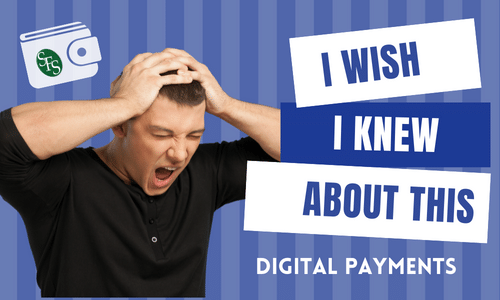This isn’t a tax change; it’s a tax reporting change.
If you’re a gig worker, freelancer, or self-employed American, it might be in your best interest to get a jump on your 2022’s taxes and consult with us at SFS Tax & Accounting Services.
That’s because a new tax reporting law could affect your tax return next year. This recent ruling, a provision of the 2021 American Rescue Plan, now requires earnings over $600 paid through digital apps like PayPal, Cash App, or Venmo to be reported to the IRS.
You may have some questions if you have a side job or full-time freelance gig and earn money through a third-party payment app.
The new legislation is not a tax change: It’s a tax reporting change so the IRS can monitor transactions made through payment apps that often go unreported.
Beginning Jan. 1, 2022, third-party payment network providers will be required to send users a Form 1099-K, Payment Card, and Third-Party Network Transactions for transactions made during the 2022 tax year by mail or electronically. The new tax reporting requirement will impact 2022 tax returns filed in 2023.
Before 2022, the reporting threshold was $20,000 AND more than 200 transactions. But with the perceived under-reporting of income by those in the gig economy, the transaction threshold was eliminated, and the dollar threshold was lowered to $600. In addition, now the IRS will use their computer auditing to compare your 1099-Ks with what you report on your tax return and audit you if they do not match.
Additionally,
- If you use digital payment platforms, you must provide your SSN or FEIN and a valid name and address to accept digital payments or buy and sell tickets online.
- Most of these transactions for those receiving funds will now have this activity reported to the IRS if the total for the year exceeds $600. This is true even if you lose money on the transaction. It will be done using Form 1099-K and issued to you in January.
- If the IRS considers the transaction a business transaction, you will now need to report the transaction on your 2022 tax return, even for casual transactions that lose money. For example, this is often the case when selling event tickets for a loss or taking digital payments at a garage sale.
- You can expect to receive a separate 1099-K from every platform you use where you exceed the $600 threshold. We
And,
- Whenever you exchange money with friends in a digital format like Venmo, have them mark the transaction as non-business. Of course, each application will handle this differently, but you must do this to avoid getting a 1099-K in error.
- When receiving payments from friends, ask for a check or cash if there is potential for error. This will avoid the 1099-K reporting mess.
- When receiving a digital payment, you rely on the person paying you to code the transaction correctly. Unfortunately, you cannot make them do it correctly, so you now need to keep track of digital money received, who it was from, and for what purpose.
- For those of you in the gig economy, you have a different problem. Many reporting platforms are inconsistent in reporting. Some say your income twice, once on a 1099-K and again on another tax form (1099-MISC or 1099-NEC). You must actively monitor this information. Plus, you need to know whether the amount reported is gross proceeds (required) or whether they netted out their fees.
- Infrequent users of places like eBay, Etsy, and Amazon were in business when payments received were more than $600. So be prepared to create a business tax return on Schedule C of your Form 1040.
Yes, it can be confusing. Consult with your Enrolled Agent, Jeffrey Schneider, EA, CTRS, ACT-E, should you have questions before the 2023 tax season begins. Contact him at https://sfstaxacct.com/contact/


